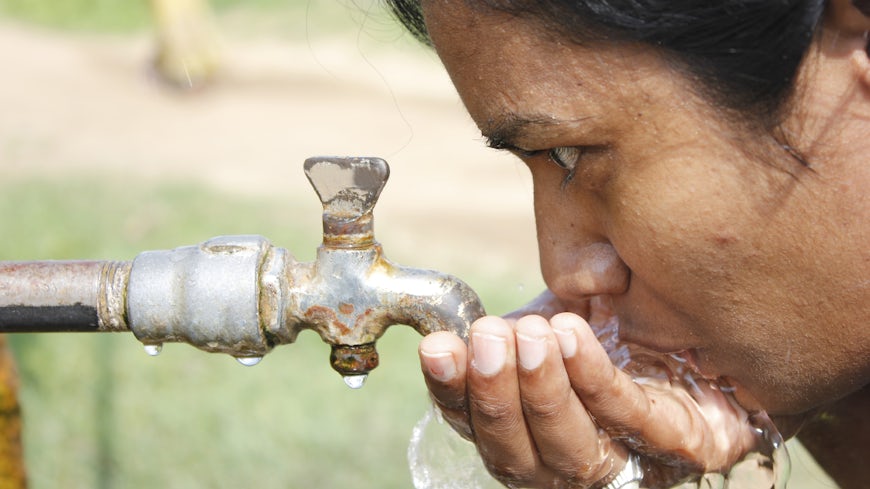Ymladd yn erbyn twf heintiau difrifol
Darganfyddiad genyn sy'n wrthiannol i antibiotigau gan ymchwilwyr Prifysgol Caerdydd yn newid agwedd a pholisi yn fyd-eang o ran monitro ac ataliad.

Mae'r cynnwys isod ar gael yn Saesneg yn unig.
The World Health Orgnisation lists the problem of antibiotic resistance as one of the greatest threats that humanity faces in the 21st century.
In the UK alone, some 5,000 people a year die from infections that are resistant to antibiotics. Drug resistance is steadily growing, reducing the effectiveness of our most powerful antibiotics.
The issue lies with bacterial enzymes called beta-lactamases which are able to break down antibiotics such as penicillin. A sub-group of these enzymes – carbapenemases - break down the most clinically useful group of these antibiotics – carbapenems. The most potent of these bacterial enzymes are metallo- beta-lactamases (MBL) for which there are no known clinical inhibitors.
A contaminated country
In 2008, Professor Timothy Walsh and Dr Mark Toleman from Cardiff University discovered a new MBL - New Delhi Metallo-beta-lactamase (NDM-1) - which has spread globally more rapidly than any other type of antibiotic resistance.
In collaboration with Channel 4 journalists, the pair discovered that the environment of India was significantly contaminated with the NDM-1 bacteria. Their work changed the global understanding of antibiotic resistance. Some of their key findings on NDM-1 were that:
- it was widespread in the Southern Asian community, not just hospitals, making it a very different type of antibiotic resistance
- it possesses a unique genetic structure, context and origin
- it has been exceptional in spreading through diverse bacterial species
- the rapid spread was assisted by overseas travel and surgery.
Walsh and Toleman were responsible for 90% of the molecular characterisation of NDM-1 as well as being the first to report it being present in key human pathogens.
World Health Orgnisation (WHO)
WHO is the directing and coordinating authority for health within the United Nations system. It is responsible for providing leadership on global health matters, shaping the health research agenda, setting norms and standards, articulating evidence-based policy options, providing technical support to countries and monitoring and assessing health trends.
Tackling the infection
In November 2009, Walsh and Toleman were part of a UK-wide Department of Health call, alerting all UK hospitals and departments to this new type of antibiotic resistance. Their NDM-1 studies were used to ensure mandatory screening was conducted on all patients arriving from overseas hospitals. Europe, South Africa and Canada also enhanced and upgraded their infection control measures.
In India, direct responses to Walsh and Toleman's research were underway. In 2010, a National Task Force produced India's first ever national antibiotic policy. Two years later, all major Indian clinical, academic and research bodies met to discuss the implementing of antibiotic stewardship, infection control and national surveillance. This led to the government taking the issue of antibiotic resistance more seriously. As NDM-1 was prevalent in the water system, they issued chlorine tablets to those inhabitants of New Delhi who are unable to afford bottled water.
Public awareness and the seriousness of 'superbugs' was significantly increased following the publication of Walsh and Toleman's ground-breaking paper in Lancet Infectious Diseases. This article on NDM-1 was the fourth biggest television news story worldwide, with the story hitting the front pages of the main broadsheet newspapers in the UK.
The international interest generated by Walsh and Toleman's research led to them giving over 50 international talks on NDM-1, addressing the European Parliament with the Head of WHO, presenting to NATO surgeons and gaining membership on the World Health Associated infection forum.

